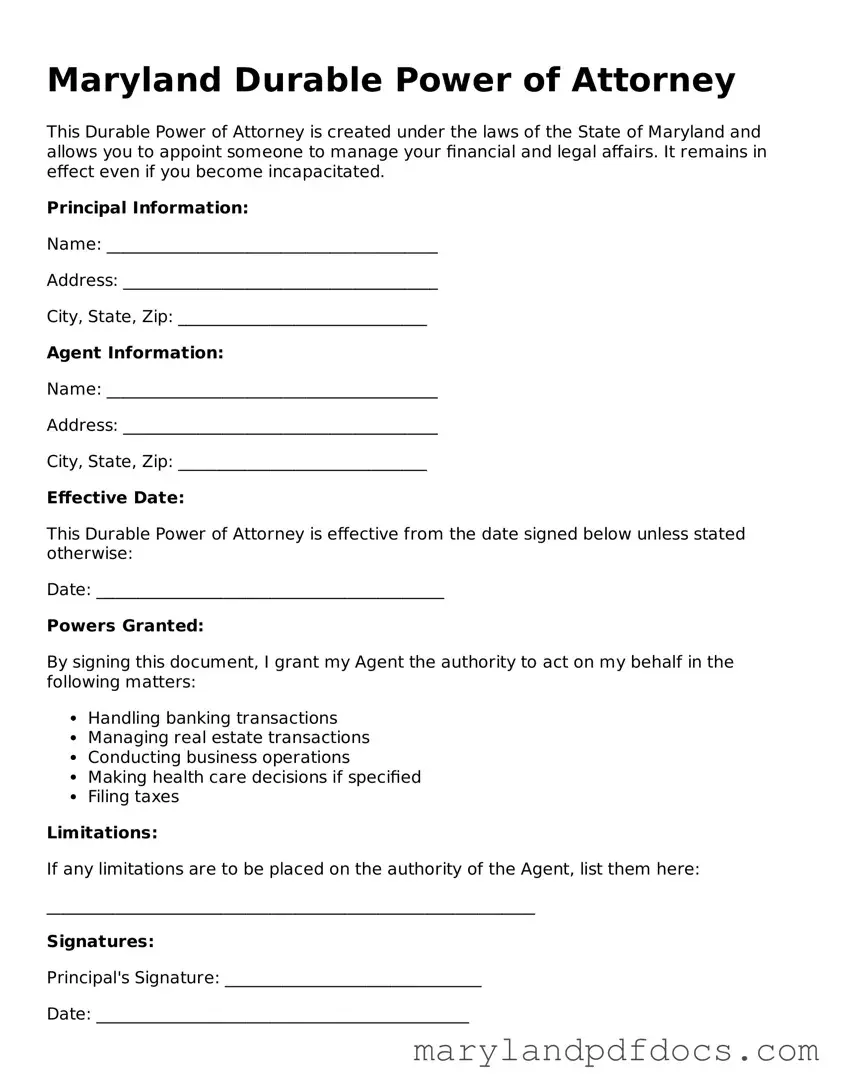Printable Maryland Durable Power of Attorney Template
A Maryland Durable Power of Attorney form is a legal document that allows you to appoint someone to make decisions on your behalf if you become unable to do so. This form ensures that your financial and medical matters are managed according to your wishes. If you're ready to take this important step, fill out the form by clicking the button below.
Launch Durable Power of Attorney Editor

Printable Maryland Durable Power of Attorney Template
Launch Durable Power of Attorney Editor

Launch Durable Power of Attorney Editor
or
Free Durable Power of Attorney PDF
You’ve already started — finish it
Fill out Durable Power of Attorney digitally in just minutes.